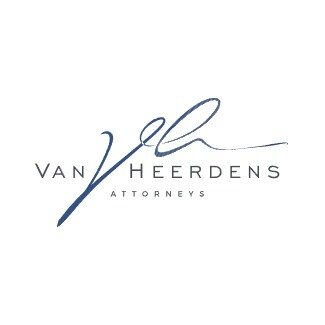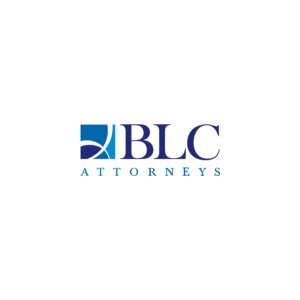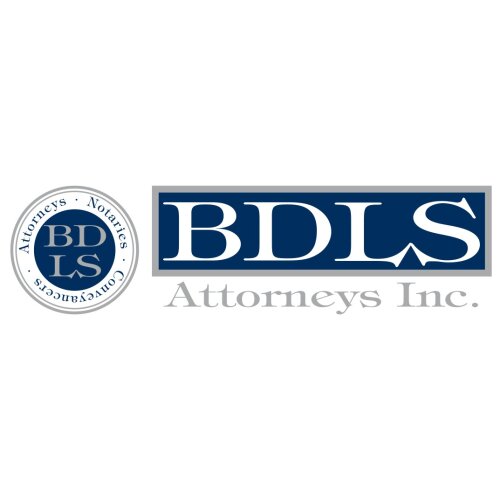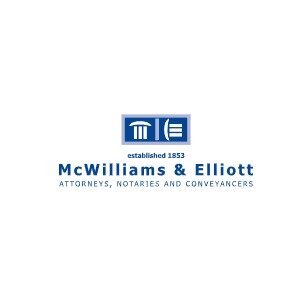Best Real Estate Lawyers in Port Elizabeth
Share your needs with us, get contacted by law firms.
Free. Takes 2 min.
Free Guide to Hiring a Real Estate Lawyer
List of the best lawyers in Port Elizabeth, South Africa
South Africa Real Estate Legal Questions answered by Lawyers
Browse our 3 legal questions about Real Estate in South Africa and read the lawyer answers, or ask your own questions for free.
- Request for Consultation – Property Dispute and Unlawful Actions by Landlord
- Dear Attorney, I am seeking legal assistance regarding a property dispute currently before the Johannesburg Magistrate’s Court. The Plaintiff has issued summons against me for alleged arrears and eviction. However, prior to the summons, the landlord engaged in a series of unlawful actions between August and October 2025, including: •... Read more →
-
Lawyer answer by Botha Bezuidenhout Attorneys Inc
You are entitled to institute a counterclaim for damages suffered. You are welcome to visit our website for contact information or to book a consultation.
Read full answer - Landlord can he charge extra for visitors
- This is a caravan park on a farm, but the landlord also said we could build a building to live in instead of a caravan/ tent. If we do that we must pay for the building each building is a different price it depended on it size which we paid... Read more →
-
Lawyer answer by mohammad mehdi ghanbari
Dear Sir/Madam, Thank you for explaining your situation in such detail; from what you describe there are several possible legal issues, including the terms of your agreement about the building and monthly fee, the new charge for your children to...
Read full answer - Landlord harssing me
- I recently moved out where I stayer because For 5 years nothing was fixed, eligal elictricity meters were installed hardly had water was treated like shit. I moved without notice cause I was tired off al this shit. No the landlord is harassing me at work wanting money for the... Read more →
-
Lawyer answer by mohammad mehdi ghanbari
Hello, good morningBased on the information you've provided, it appears your landlord may have violated several of your rights as a tenant. You may have grounds for a "constructive eviction" claim, and the landlord's current actions could be considered harassment.Your...
Read full answer
South Africa Real Estate Legal Articles
Browse our 2 legal articles about Real Estate in South Africa written by expert lawyers.
- South African Residential Rental Laws for Foreign Owners
- Non-resident landlords must strictly adhere to the Prevention of Illegal Eviction from and Unlawful Occupation of Land Act (PIE Act) and the Rental Housing Act to avoid legal penalties. Security deposits must be placed in a separate interest-bearing account, with interest accruing for the benefit of the tenant. Illegal "self-help"... Read more →
- How to Transfer Property in a South African Deceased Estate
- Inherited property in South Africa is exempt from Transfer Duty, but the estate may still be liable for Estate Duty if the total value exceeds R3.5 million. No property can be sold or transferred until the Master of the High Court issues formal Letters of Executorship to the appointed representative.... Read more →
About Real Estate Law in Port Elizabeth, South Africa
The field of real estate law in Port Elizabeth and South Africa as a whole is vast, comprising various regulatory structures, laws, and practices. It incorporates commercial and residential property law, land rights, leasing and rental laws, and property-related disputes. Regulated by both national statutes such as the Property Act of 1975, Deeds Registries Act, and local bylaws and guidelines, it covers sales, purchases, and other transactions related to property.
Why You May Need a Lawyer
Buying and selling property in Port Elizabeth requires thorough knowledge about the property laws of South Africa. A mistake or misunderstanding can result in significant financial and legal ramifications. Lawyers assist in the process of drafting, reviewing, and verifying legal documents; ensuring compliance with local regulations, and they serve a crucial role in dispute resolutions. You may also need a lawyer for matters related to leases, evictions, property taxes, zoning, and estate planning.
Local Laws Overview
The key laws that govern real estate in Port Elizabeth are largely mirrored across the Republic of South Africa. The most significant are the Deeds Registries Act, which controls property transactions; the Sectional Titles Act, which handles sectional property regulations; the Rental Housing Act, which governs tenant-landlord relationships. Local bylaws in Port Elizabeth may also impact various aspects of property ownership and leasing such as zoning regulations or heritage property laws.
Frequently Asked Questions
1. Can a foreigner buy a property in Port Elizabeth?
Yes, foreigners can buy property in South Africa, but certain restrictions and regulations need to be followed. Consulting with a lawyer familiar with all the laws and regulations will ensure a smooth transaction process.
2. What are the property transfer fees in South Africa?
Property transfer fees vary depending on the value of the property. These comprise of transfer duty, legal costs, and registration fees. Legal professionals can provide a more detailed breakdown as per each case.
3. What is conveyancing?
Conveyancing is a legal process involved in the transfer of property from one owner to another. This process is usually conducted by a conveyancer or a lawyer specialized in property law.
4. Who pays for the legal costs for a property transaction?
Typically, the buyer is responsible for paying legal costs which include conveyancing fees. However, this can be negotiated between the parties involved.
5. What if a dispute arises during the property transaction?
If disputes arise, it’s recommended to seek advice from a lawyer specializing in property law. They will help in understanding the rights and obligations under South African law and guide the parties toward a resolution.
Additional Resources
Various bodies can provide advice or assist in property law matters. These may include the Estate Agency Affairs Board, The Property Practitioners Regulatory Authority, Legal Aid South Africa, and the South African Property Owners Association. Researching online resources or speaking with a property law specialist can also be helpful.
Next Steps
If you need legal advice, it's recommended to contact a reputable legal firm specializing in real estate law for a consultation. Ensure the firm is registered with the relevant legal in South Africa, and don't be afraid to ask for clarification or further information on anything you don't understand. Preparing your questions in advance can help make the most of your consultation and ensure you get the advice you need.
Lawzana helps you find the best lawyers and law firms in Port Elizabeth through a curated and pre-screened list of qualified legal professionals. Our platform offers rankings and detailed profiles of attorneys and law firms, allowing you to compare based on practice areas, including Real Estate, experience, and client feedback.
Each profile includes a description of the firm's areas of practice, client reviews, team members and partners, year of establishment, spoken languages, office locations, contact information, social media presence, and any published articles or resources. Most firms on our platform speak English and are experienced in both local and international legal matters.
Get a quote from top-rated law firms in Port Elizabeth, South Africa — quickly, securely, and without unnecessary hassle.
Disclaimer:
The information provided on this page is for general informational purposes only and does not constitute legal advice. While we strive to ensure the accuracy and relevance of the content, legal information may change over time, and interpretations of the law can vary. You should always consult with a qualified legal professional for advice specific to your situation.
We disclaim all liability for actions taken or not taken based on the content of this page. If you believe any information is incorrect or outdated, please contact us, and we will review and update it where appropriate.
Browse real estate law firms by service in Port Elizabeth, South Africa
Port Elizabeth, South Africa Attorneys in related practice areas.












